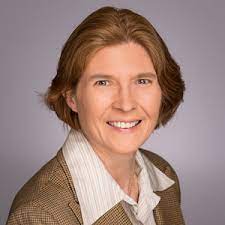What Tech Transfer Can Learn from Temple Grandin About Inclusivity

Lisa Mueller
Chair, AUTM EDI Committee
I love stories, which is one reason why I enjoy interviewing guests for the AUTM on the Air podcast. So far, I’ve worked with more than 100 individuals as they have shared their unique and engaging stories with our podcast listeners. But sometimes the most interesting thing I learn about a guest isn’t mentioned until after the recording is over.
An example of this was my recent interview with Dr. Temple Grandin, who is well known both as an inventor and as a passionate advocate for individuals who, like her, are living with autism. I learned a lot during the recording of that podcast about how we, as a society and as technology transfer professionals, all benefit from inclusive practices. But afterward, as we continued chatting, I learned much more about what inclusivity actually looks like.
Grandin spoke at length about her autism and inability to read at the age of 8 and how her mother developed a plan with her third-grade teacher to teach her reading at home. Every day after school, Grandin’s mother spent an hour teaching her phonics. Instead of reading her very simple books, Grandin’s mother read books like The Wonderful Wizard of Oz. Her mother would read a page of the book and then stop in the middle of an exciting part, which fueled Grandin’s desire to find out what happened next. But before they would continue, Grandin’s mother required her to sound out every letter of the alphabet that she had taped to a wall. Over time, as Grandin learned more, her mother read less and less, and eventually, Grandin began reading full sentences. Within a few months, her reading ability had jumped several levels. According to Grandin, phonics, one-on-one tutoring, and her mother’s instinct to choose stories that kept her attention were the key.
In addition to teaching her how to read, Grandin’s mother insisted that she learn manners, turn taking, and self-presentation. Grandin admitted that while these tasks were very difficult for her as an autistic child to master, they were truly life skills, and tools that helped her learn about cooperation, communication and compromise. According to Grandin, without these skills, she would not have been able to develop her career, which includes teaching animal science at Colorado State University.
While the special help and intensive tutoring from her mother helped Grandin navigate the challenges of school and learn extremely important life skills, it was a science teacher who mentored her early on and helped her learn the physical skills necessary to take care of the horses at her school. Because of this mentoring, Grandin found a subject that captured her interest, which ultimately led to her incredible career in animal husbandry. Without that mentor, Grandin’s inventions, insights and contributions would not exist.
Grandin’s story reminds us of the important role caregivers such as parents and mentors play in shaping the lives of neurodivergent individuals and doing whatever it takes to give those individuals the skills and tools that will help them succeed. All people, regardless of ability, benefit when embraced and included by family and society—and, as adults, by colleagues. As AUTM Members work toward our goal of an inclusive technology transfer community, it’s worth remembering that sometimes inclusivity means being willing to provide additional assistance and accommodation—and that the potential rewards are well worth the extra time and effort.
To listen to the podcast visit https://autm.net/about-tech-transfer/autm-on-the-air.